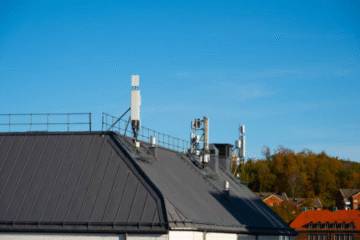GCSE courses are UK academic programs for students aged 14–16, offering a mix of core and optional subjects to build a strong educational base. Usually taken between the ages of 14 and 16, GCSE courses represent a pivotal point in the UK’s secondary education system and act as a gateway to further academic or vocational opportunities.
GCSE courses matter greatly because they shape a student’s future. Whether it’s GCSE English Language, GCSE Mathematics, or Science GCSE (Triple or Combined), these subjects form the core of academic achievement and professional development. Recognized by employers, colleges, and universities alike, GCSE courses offer foundational knowledge, skill development, and future progression.
Introduced in the late 1980s to replace O-Levels and CSEs, GCSE courses were designed to create a standardized, inclusive educational system. Regulated by Ofqual (Office of Qualifications and Examinations Regulation), GCSE courses are now a staple of the National Curriculum.
Understanding the Structure of GCSE Courses
GCSE courses typically include core and optional subjects. Core GCSE courses—Maths, English, and Science—are compulsory for all students. Optional GCSE courses can vary depending on the school and often include languages, humanities, creative arts, and technical or vocational training subjects.
These GCSE courses are delivered during Key Stage 4, which encompasses Years 10 and 11 in the UK education system. Students generally select 8–10 GCSE courses, combining both required and elective options tailored to their interests and long-term academic or career goals.
List of Popular GCSE Course Subjects
Compulsory GCSE courses include GCSE Mathematics, GCSE English Language and Literature, and GCSE Science. These core subjects are essential not only for academic success but also for everyday life and future studies.
In addition to the core subjects, students can choose from a wide range of elective GCSE courses. These may include humanities subjects (such as History and Geography), modern foreign languages (Spanish, French, German), creative arts (Art, Drama, Music), and technical subjects like Business Studies or Computing. This variety in GCSE courses ensures students have the flexibility to design an educational pathway aligned with their strengths and aspirations.
GCSE Grading System Explained
GCSE courses in England are graded using the 9–1 scale, with 9 being the highest grade. This newer system has replaced the traditional A–G grading scale* to offer more precise distinctions, especially for top-performing students.
A grade 4 in GCSE courses is considered a standard pass, while a grade 5 is classified as a strong pass. Grades 1–3 are considered below the pass threshold. Understanding this grading system is crucial for interpreting student performance and eligibility for further education.
How to Choose the Right GCSE Courses
Choosing the right GCSE courses is a vital decision that affects a student’s future education and career. Key considerations include personal interests, academic strengths, career ambitions, and university prerequisites.
Students are encouraged to seek guidance from teachers, career counselors, and parents when selecting GCSE courses. Some careers and A-level subjects may require specific GCSE courses, so making informed decisions early on is beneficial.
Online and Distance Learning Options for GCSE Courses
In recent years, online and distance learning options for Online GCSE courses have become increasingly popular. Many institutions now offer flexible, remote study opportunities that allow learners to complete their GCSE courses from home. This is especially beneficial for adult learners, home-schooled students, or those needing a more adaptable schedule.
These online GCSE courses cover the same content and are assessed using the same exams as traditional in-school formats. They often include digital resources, video tutorials, online tutors, and interactive assessments.
GCSE Courses for International Students
International students interested in studying in the UK can also enroll in GCSE courses. Many UK schools and colleges offer tailored programs for international learners, including English language support and cultural integration.
GCSE courses are globally recognized, making them an excellent qualification for students planning to pursue higher education or employment in the UK or other English-speaking countries.
GCSE Exams and Assessment Methods
Assessment in GCSE courses is mainly conducted through final exams held at the end of Year 11. However, some subjects may also include coursework, practical assessments, or oral presentations, depending on the discipline.
The exam boards such as AQA, Edexcel (Pearson), OCR, and WJEC design and administer these GCSE course assessments. Each board has specific formats and content, so students should be aware of their board’s criteria.
Support Resources for GCSE Course Success
Success in GCSE courses often depends on access to quality support resources. These may include revision guides, past papers, tutoring services, online platforms, and study apps.
Websites like BBC Bitesize, Seneca Learning, and Khan Academy offer free or affordable tools tailored specifically to GCSE courses. Schools may also provide after-school help sessions or targeted interventions.
Conclusion
GCSE courses are more than just school qualifications—they are the building blocks of a successful academic and professional journey. They teach critical thinking, subject-specific knowledge, and essential life skills that prepare students for A-levels, apprenticeships, university, and beyond.
Choosing the right GCSE courses and committing to them with effort and enthusiasm can set the stage for lifelong success. Whether through traditional classroom settings or online platforms, GCSE courses continue to empower the next generation with tools to thrive in an increasingly competitive world.
Frequently Asked Questions
How many GCSE courses do students usually take?
Most students take between 8 to 10 GCSE courses, including compulsory subjects like Maths, English, and Science.
Are GCSE courses mandatory?
Yes, certain GCSE courses such as English, Maths, and Science are compulsory for all students in the UK education system.
Can I study GCSE courses online?
Yes, many institutions offer online GCSE courses, allowing flexible learning for home-schooled or adult learners.
What grades do I need to pass GCSE courses?
A grade 4 is considered a standard pass, while a grade 5 is a strong pass under the 9–1 grading system used for GCSE courses.
Stay in touch to get more updates & alerts on Erome! Thank you



